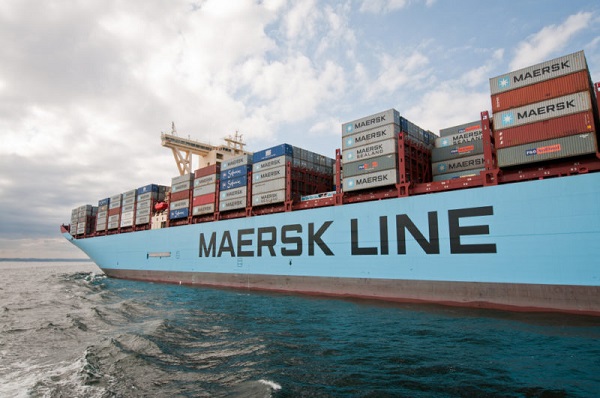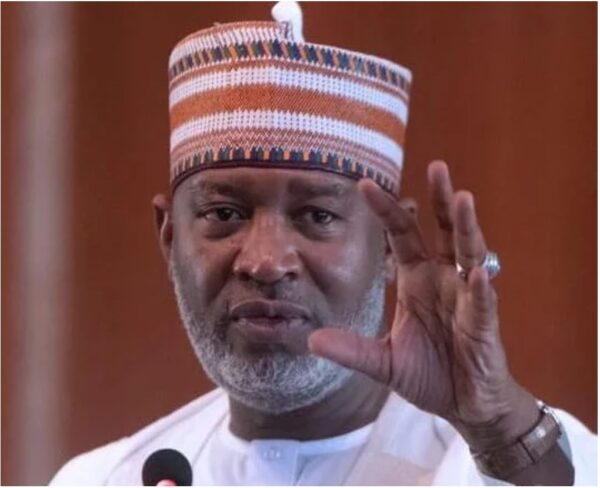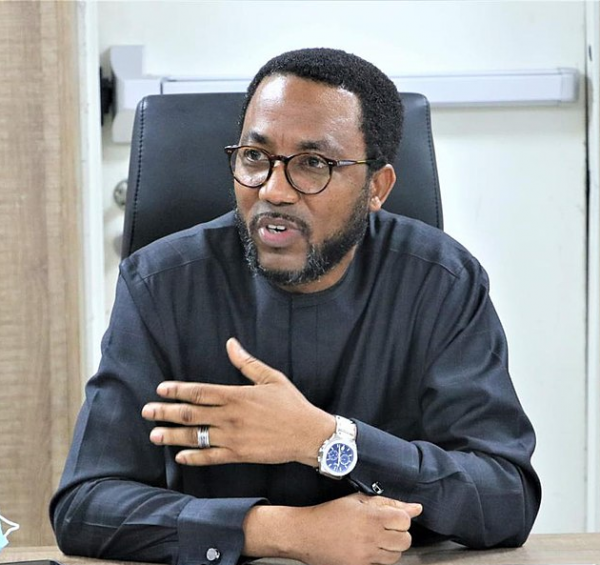Maersk Line Uses Indian Office To Fleece Nigerian Shippers

· Workers get clearance from India for all decisions
· CEMA is an outdated draconian law – Nweke, Nwadike
By Kenneth Jukpor
Despite the Federal Government’s campaign for enhanced ease of doing business at the ports, one of the foremost shipping lines operating in Nigeria, Maersk Line has been labeled an anti-compliant company extorting freight agents with demurrages and non-refund of container deposits.
MMS Plus investigations show that freight agents spend at least two weeks waiting to resolve their complaints at Maersk Line, even though the company has a functional office in Apapa, Lagos.
For an organization with vast network covering over 300 ports in more than 120 countries, and a promise to deliver fast, reliable and regular connection, members of staff at the Lagos office apparently have no managerial authority to handle the slightest of issues as they resort to the headquarters in India for all queries.
Last week, this unprofessional business conduct led to crisis at Maersk Line that saw policemen manhandle freight agents in a bid to quell the fracas resulting from the massive delay in issuance of debit note, delivery orders, payment receipt, container deposit refund, among others.
Frank Obiekezie, a freight forwarder in Lagos narrates his experience last week; “On Monday morning, as early as 6:20am I was at Maersk Line office and I could only manage to get number 75. People were already waiting on a queue for Maersk Line staff who would not resume until about 9am. Everyone was lamenting and this puts the lives of agents in danger because there was no adherence to social distancing.”
“If nothing is done urgently, Maersk Line will further cripple Nigeria’s economy as it also goes ahead to rubbish all efforts and measures being put in place to contain the spread of the COVID-19 pandemic by the government as well as freight forwarders who are striving to keep the economy going.”
“It is an act of impunity for Maersk line to roll out police to intimidate the freight forwarders. It is also an act of abuse of operational norms for the company which runs a liner shipping operation to Nigeria to be releasing cargo from India Office, a process that takes two weeks, a deliberate act which wet ground for progressive storage extortion”
When contacted, the Public Relations Officer of National Association of Government Approved Freight Forwarders (NAGAFF) Mr. Stanley Ezenga to MMS Plus that such delay has been the norm with Maersk Line in the country.
“It didn’t start this week. Maersk Line as a company is in Nigeria but the management is in India. For any infraction a freight forwarder has in Nigeria, he has to wait for clarification from the Maersk Line management in India. Recently, the situation worsened as a result of the pandemic as jobs piled up at the shipping company. The issues that couldn’t be addressed because of the lockdown have accumulated and there is a massive rush which put a strain on Maersk Line operations at the port,” Ezenga said.
The NAGAFF spokeman noted that the company came up with email addresses; however, he lamented that the responses via emails have been irregular and incomprehensive.
“We are dealing with robots and this hinders the handling of anything that requires human interface. We send mails and wait indefinitely for the issues to be addressed. This is a serious indictment because Maersk Line appears to be operating by proxy in Nigeria. They have members of staff in Nigeria but they can’t make decisions that should expedite port processes.”
He pointed out that other shipping lines do not pose such challenge as their officers treat issues speedily.
“During the lockdown, other shipping lines made available contact phone numbers of their workers. Freight agents could call, explain their challenges and get them resolved. You can easily explain your problems via the phone get a response and get the matter resolved. Maersk Line only has a customer care whose response can be likened to someone speaking inside a tunnel,” he added.
The doubts on these anti-business Maersk Line operations were eliminated when MMS Plus attempts to reach the Director, Customer Service, West and Central Africa, Maersk Line, Mr. Razak Ngula were directed to a voicemail message which was terminated after ten seconds.
While there is no puzzle in utilizing voicemails, the question is – why would a Customer Service guru restrict his voicemail messages to just ten seconds? What information can be passed comprehensively in ten seconds?
In another development, Nigeria Customs Service (NCS) have been accused of operating under obsolete draconian laws which are anti-export and a negation to President Muhammadu Buhari’s export promotion agenda.
Maritime experts argue that the Customs Excise and Management Act (CEMA) is anti-trade by nature, positing that there is a dire need for an overhaul of the law.
A retired Comptroller of the Nigeria Customs Service, Mr. Anselm Nwadike shared this view during an exclusive chat with MMS Plus newspaper last week.
His words: “It is obvious that CEMA needs to be reviewed. The current CEMA isn’t in line with the realities the Customs officers have to deal with. There are lots of obsolete dictates in CEMA and most of the books Customs utilize are also obsolete.”
“The unfortunate thing is that the Customs leadership seems to be less concerned about this. Their primary concern is ensuring a huge amount of money is generated and announced. It’s good to talk about increasing revenue figures but can we deduce that there was an improvement in the activities of Customs? Which area did they improve?”
“There must be criteria to measure this perceived improvement. The Customs stay in their officers for people to approach to clear their goods. What effort did they make when they simply sat in their offices and people approached to pay their dues? How do you justify increased revenue when import volumes reduced? If the exchange rate for 2019 was N200/$ and it became N400/$ in 2020, isn’t it normal to have double the revenue for 2019?” Nwadike queried.
Similarly, a former President of NAGAFF, Chief Eugene Nweke said; “NCS was established by a law and that is the CEMA. The last administration of Customs called for an amendment. That amendment was concluded and sent to the President for approval but it was called back to be revised but since then it remained under the file.”
He argued that the current CEMA was a document prepared before the independence as Jones law from the British and adopted by Nigeria with minimal changes.
“We adopted this draconian law and all we have done is to add more laws to it. We have continued to add caps but the crux of the law remain draconian. There is need for Customs to have what represents a trade facilitation tool,” he added.







